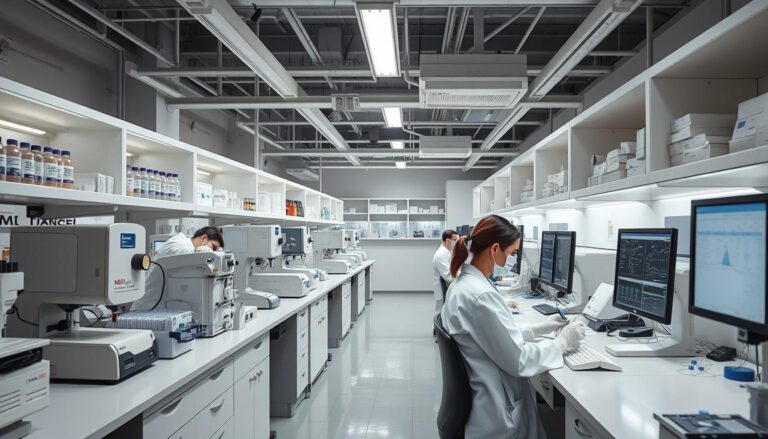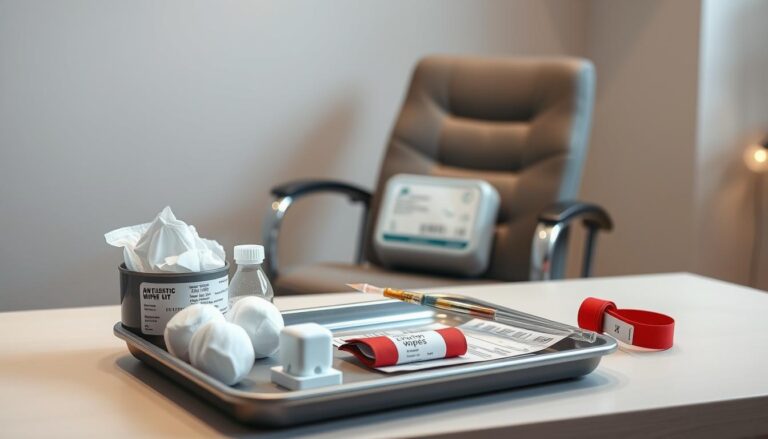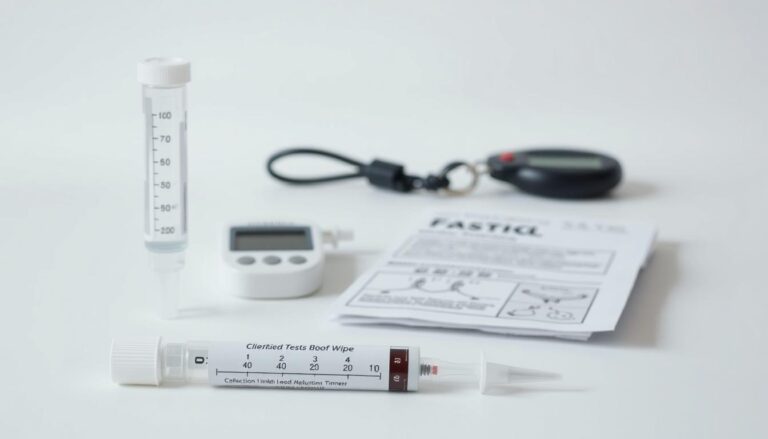5 Benefits of Regular Health Check-ups: Why Regular Check-ups Are Essential for Your Health
Do you only see a doctor when you’re sick? It’s time to change your approach to healthcare. Regular check-ups are vital for your overall well-being.
Let’s explore the top 5 benefits of routine check-ups. You’ll see why they should be a priority for everyone who cares about their health.

Many health problems don’t show symptoms early on. By the time you feel something, the condition may have worsened. Regular check-ups can spot potential issues before they become serious.
This allows for timely treatment and intervention. Are you ready to take proactive steps to protect your health?
Understanding Regular Health Check-ups and Their Importance
Regular health check-ups are key to maintaining our well-being. They provide insights into our health status and help address potential concerns. These screenings allow us to monitor changes and protect our long-term health.
What Constitutes a Regular Health Check-up
A typical check-up includes a thorough evaluation of your health. It covers physical exams, blood pressure checks, and cholesterol tests. These assessments create a health baseline for tracking subtle changes over time.
Who Should Get Regular Health Screenings
People of all ages can gain from regular health check-ups. Young adults may need yearly check-ups to stay healthy. Adults aged 30-50 can benefit from annual or biennial screenings.
Seniors often find yearly check-ups crucial. These help detect age-related conditions and diseases early on.
Recommended Frequency of Health Check-ups
Check-up frequency varies based on age, gender, and health history. Most adults should get an annual check-up. Children may need more frequent visits to monitor growth.
Older adults might require regular check-ups to manage chronic conditions effectively.
Regular check-ups provide peace of mind and support proactive healthcare. They help establish a baseline and spot potential issues early. This empowers us to take charge of our overall health and well-being.
Benefits of Regular Health Check-ups
Regular health check-ups are essential for maintaining good health. They offer many benefits that can improve our well-being and quality of life. Let’s explore these advantages.
Early detection of health issues is a key benefit of regular check-ups. Preventive screenings can spot problems early when they’re easier to treat. This leads to better health outcomes and timely interventions.
Check-ups also provide personalized health advice. Healthcare providers assess your risk factors, habits, and medical history. They then offer tailored recommendations to help you maintain good health.
Regular visits build trust with your healthcare team. This relationship leads to more comprehensive and coordinated care. You’ll feel more comfortable sharing health concerns, improving the quality of care you receive.
Health check-ups can save you money in the long run. Catching issues early often prevents the need for costly treatments later. This approach uses healthcare resources more efficiently.
The benefits of regular check-ups are far-reaching. They offer early detection, personalized advice, and cost-effective care. Make check-ups a priority for your health and well-being.
| Benefit | Description |
|---|---|
| Early Disease Detection | Regular screenings can identify potential health issues in their early stages, leading to timely interventions and better health outcomes. |
| Personalized Health Advice | Healthcare providers can offer tailored recommendations based on individual risk factors, lifestyle habits, and medical history. |
| Building Trust with Healthcare Providers | Consistent check-ups help establish a strong relationship with healthcare providers, leading to more comprehensive and coordinated care. |
| Cost-effective Treatment | Catching potential issues early can avoid the need for more expensive and invasive treatments in the long run. |
Essential Components of a Comprehensive Health Check-up
A comprehensive health check-up is key to preventive healthcare. It includes various screenings based on age, gender, and lifestyle. Let’s explore the main parts of a thorough health assessment.
Basic Health Screenings and Tests
Basic screenings provide a snapshot of overall well-being. These include blood tests for glucose and cholesterol. They also measure blood pressure and calculate Body Mass Index (BMI).
Routine vision and hearing tests are part of these basic screenings too.
Age and Gender-Specific Health Assessments
Comprehensive check-ups include age and gender-specific evaluations. Women may get mammograms to detect breast cancer. Men might have PSA tests to screen for prostate cancer.
Older adults may need bone density scans for osteoporosis. People over 45 often get colorectal cancer screenings.
Lifestyle and Risk Factor Evaluation
Health check-ups also assess lifestyle and risk factors. This includes looking at diet, nutrition, and physical activity habits. Doctors evaluate stress levels and mental health too.
They also consider smoking, alcohol, and substance use history.
These check-ups offer personalized health recommendations. They help detect issues early and manage chronic conditions effectively.
Conclusion
Regular health check-ups are vital for proactive health management. They help prevent diseases and save money in the long run. By getting routine check-ups, people in India can take charge of their health.
These check-ups identify potential risks and stop ailments from getting worse. They also track health trends and set baseline measurements. This info guides personalized lifestyle advice and timely treatments.
A thorough health assessment gives people a clear picture of their well-being. It empowers them to make smart choices and adopt healthier habits. Prioritizing preventive care improves life quality and supports the healthcare system.
Healthcare providers must educate patients about regular check-ups. They should help set up consistent health monitoring schedules. Together, we can create a culture of proactive health management.
This approach will lead to a healthier, stronger society. It will also result in significant cost savings for individuals and the healthcare system.







